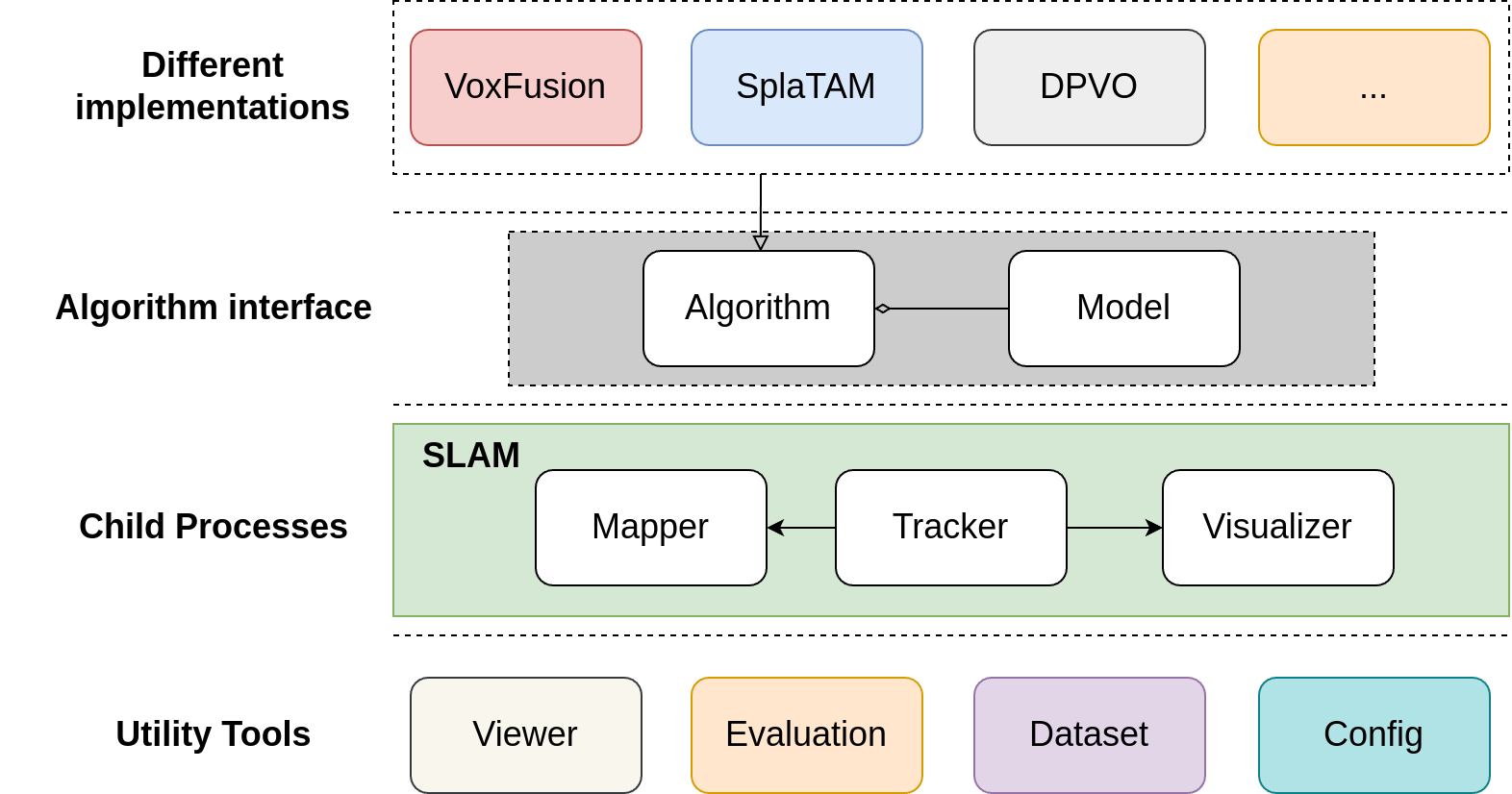OpenXRLab Deep-learning based SLAM Toolbox and Benchmark. It is a part of the OpenXRLab project.
We provide a set of pre-implemented deep-learning based SLAM algorithms.
Replica/office0
| nice-slam | co-slam | Vox-Fusion | Point_SLAM | splaTAM | DPVO |
|---|---|---|---|---|---|
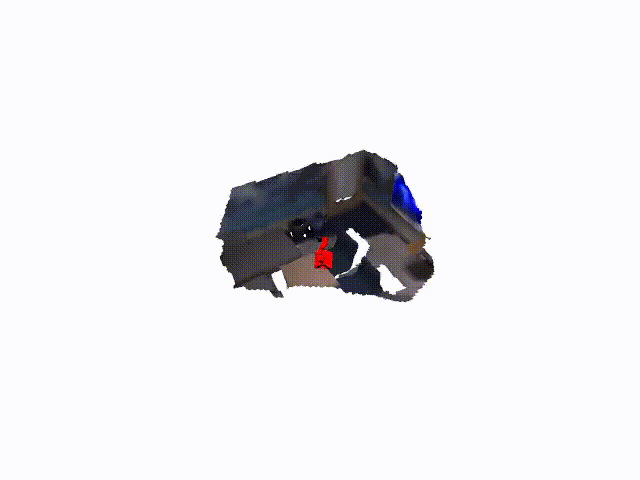 |
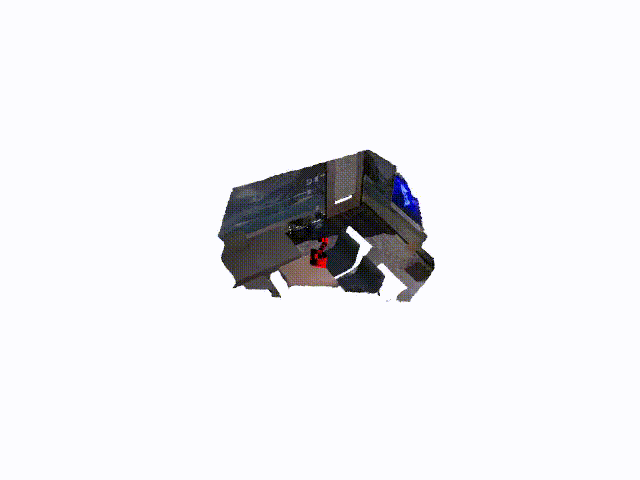 |
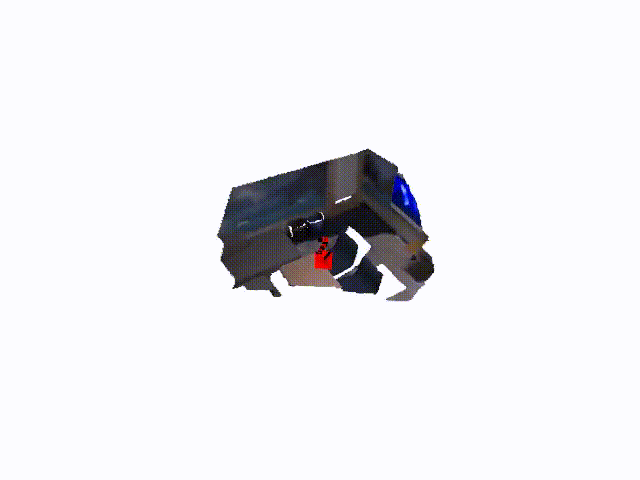 |
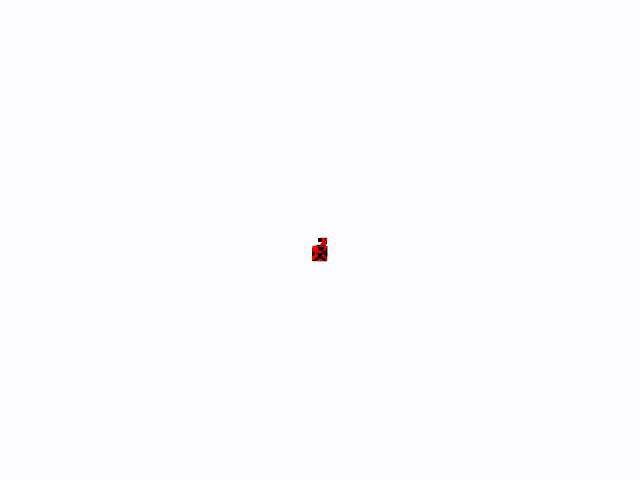 |
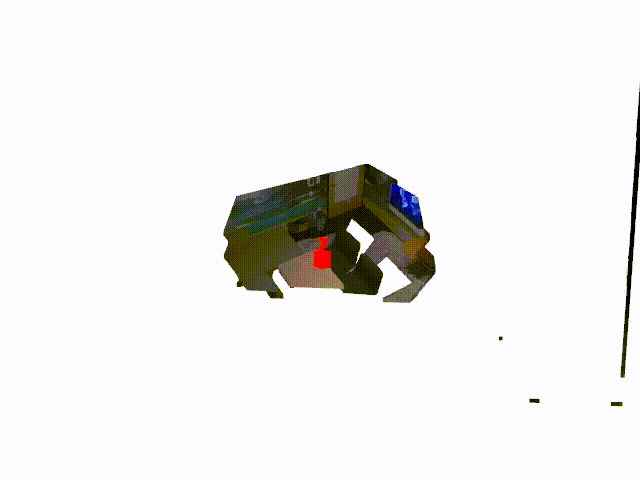 |
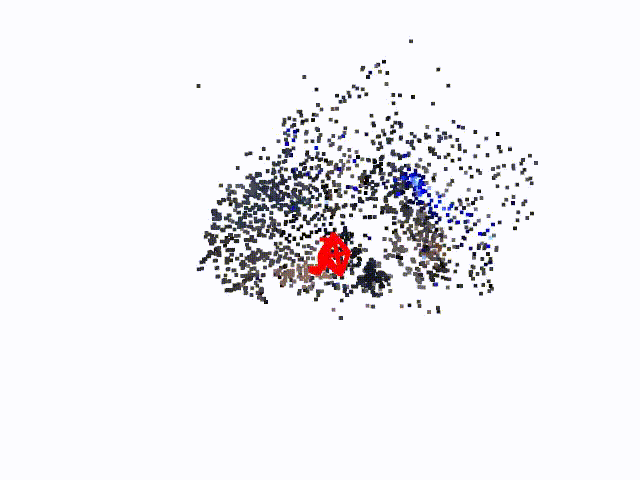 |
(Recommended)
XRDSLAM has been tested on python 3.10, CUDA>=11.8. The simplest way to install all dependences is to use anaconda and pip in the following steps:
conda create -n xrdslam python=3.10
conda activate xrdslam
conda install pytorch==2.1.1 torchvision==0.16.1 torchaudio==2.1.1 pytorch-cuda=11.8 -c pytorch -c nvidia
pip install -r requirements.txtAlternatively, we also provide a conda environment.yml file :
conda env create -f environment.yml
conda activate xrdslamBuild extension
cd third_party
bash install.sh
# installing xrdslam
cd xrdslam
pip install -e .# [0] Download some test data
ds-download-data --capture-name replica
# [1] Place devices.yaml from configs in the directory of the downloaded dataset. data/replica/Replica/office0/devices.yaml
# [2] run co-slam without online visualizer, when finished, the re-rendered images and mesh/cloud will be saved in "outputs"
ds-run co-slam --data data/replica/Replica/office0 --data-type replica
# [2] run co-slam with online visualizer
ds-run co-slam --data data/replica/Replica/office0 --data-type replica --xrdslam.enable-vis True --xrdslam.tracker.render-freq 5
# [3] eval co-slam
ds-eval --output-dir ./outputs --gt-mesh ./data/replica/cull_replica_mesh/office0.ply
# [4] use offline viewer
ds-viewer --config.vis-dir ./outputs/Note: If you have limited memory, you can set downsample_factor: 2 in devices.yaml to run the demo.
usage: ds-download-data [-h] [--save-dir PATH] [--capture-name {f1_desk,f1_desk2,f1_room,f2_xyz,f3_office,replica,neural_rgbd_data,apartment,all}]-
--save-dir
The directory to save the dataset to (default: data)
-
--capture-name
Possible choices: f1_desk,f1_desk2,f1_room,f2_xyz,f3_office,replica,neural_rgbd_data,apartment,all (default: f1_desk)
Primary interface to run xrdslam.
usage: ds-run [-h] {nice-slam,vox-fusion,co-slam,point-slam,splaTAM}The minimal command is:
ds-run nice-slam --data YOUR_DATA --data-type DATA_TYPETo learn about the available algorithms:
ds-run -h
To learn about a algorithms parameters:
ds-run {algorithm} -h
Start the offline viewer.
usage: ds-viewer [-h] [--config.vis-dir PATH] [--config.save-rendering {True,False}] [--config.algorithm-name {None}|STR]-
--config.vis-dir
Offline data path from xrdslam. (default: outputs)
-
--config.save-rendering
Save the rendering result or not. (default: True)
-
--config.algorithm-name
NOTE: When use splaTAM or DPVO, algorithm name should be set. (default: None)
Evaluate trajectory accuracy and 3D reconstruction quality.
usage: ds-eval [-h] --output-dir PATH --gt-mesh {None}|STR-
--output-dir
Path to xrdslam running result. (required)
-
--gt-mesh
Path to ground-truth mesh file. (required)
-
--correct-scale
NOTE: When evaluating the trajectory of DPVO, "--correct-scale" should be used.
The figure below is the algorithm pipeline. When adding a new deep-learning based SLAM algorithm, you need to register the algorithm in input_config.py and re-inherit and implement the functions in the Algorithm and Model classes. For details, please see adding_a_new_algorithm
Here are the comparison results on Replica datasets. The results of the original algorithm comes from multiple papers.
The algorithms with _X suffix are the corresponding algorithms in the XRDSLAM framework. For details, see benchmark.
(DPVO is a visual odometry (VO) algorithm that does not generate meshes, and DPVO paper does not provide results for the Replica datasets. Therefore, here we only present the trajectory metrics from XRDSLAM framework. The comparison results of DPVO for the Euroc dataset can be found in the benchmark.)
Note: The default configuration in the algorithm is suitable for Replica. If you use other datasets, you need to modify the corresponding configuration items in slam/configs/input_config.py.
| Algorithm | ATE RMSE [cm] - | PSNR+ | SSIM+ | LPIPS- | Precision [%] + | Recall [%] + | F1[%] + | Depth L1[cm] - | Acc. [cm]- | Comp. [cm]- | Comp. Ratio [<5cm %] + |
|---|---|---|---|---|---|---|---|---|---|---|---|
| NICE-SLAM | 1.95 | 24.42 | 0.81 | 0.23 | 44.10 | 43.69 | 43.86 | 3.53 | 2.85 | 3.00 | 89.33 |
| NICE-SLAM_X | 2.09 | 25.68 | 0.85 | 0.32 | 46.62 | 37.53 | 41.47 | 2.62 | 2.03 | 3.38 | 87.81 |
| Co-SLAM | 1.00 | 30.24 | 0.93 | 0.25 | - | - | - | 1.51 | 2.10 | 2.08 | 93.44 |
| Co-SLAM_X | 1.11 | 30.34 | 0.93 | 0.24 | 80.66 | 68.79 | 74.23 | 1.63 | 1.53 | 2.90 | 89.81 |
| Vox-Fusion | 0.54 | 24.41 | 0.80 | 0.24 | 55.73 | 49.13 | 52.20 | 2.46 | 2.37 | 2.28 | 92.86 |
| Vox-Fusion_X | 0.56 | 27.95 | 0.90 | 0.25 | 89.52 | 71.34 | 79.39 | 1.03 | 1.39 | 2.82 | 90.13 |
| Point-SLAM | 0.52 | 35.17 | 0.97 | 0.12 | 96.99 | 83.59 | 89.77 | 0.44 | - | - | - |
| Point-SLAM_X | 0.47 | 34.10 | 0.97 | 0.10 | 99.30 | 83.78 | 90.86 | 0.38 | 1.25 | 3.12 | 88.15 |
| SplaTAM | 0.36 | 34.11 | 0.97 | 0.10 | - | - | - | - | - | - | - |
| SplaTAM_X | 0.40 | 34.44 | 0.96 | 0.09 | - | - | - | - | - | - | - |
| DPVO_X | 0.31 | - | - | - | - | - | - | - | - | - | - |
The license for our codebase is under the Apache-2.0. Please note that this license only applies to the code in our library, the dependencies of which are separate and individually licensed. In the source code files, we have made specific licensing declarations for the third-party code being used. We would like to pay tribute to open-source implementations to which we rely on. Please be aware that utilizing both external dependencies and the fundamental code from their original sources might impact our codebase's licensing.
In addition to the implemented algorithm (nice-slam,co-slam,Vox-Fusion,Point_SLAM,splaTAM, DPVO), our code also adapt some codes from nerfStudio, sdfstudio. Thanks for making the code available.
- Easy-to-use config system
- Developed by Brent Yi
If you use this toolbox or benchmark in your research, please cite this project.
@misc{xrdslam,
title={OpenXRLab Deep-learning based SLAM Toolbox and Benchmark},
author={XRDSLAM Contributors},
howpublished = {\url{https://github.com/openxrlab/xrdslam}},
year={2024}
}- XRPrimer: OpenXRLab foundational library for XR-related algorithms.
- XRSLAM: OpenXRLab Visual-inertial SLAM Toolbox and Benchmark.
- XRDSLAM: OpenXRLab Deep-learning based SLAM Toolbox and Benchmark.
- XRSfM: OpenXRLab Structure-from-Motion Toolbox and Benchmark.
- XRLocalization: OpenXRLab Visual Localization Toolbox and Server.
- XRMoCap: OpenXRLab Multi-view Motion Capture Toolbox and Benchmark.
- XRMoGen: OpenXRLab Human Motion Generation Toolbox and Benchmark.
- XRNeRF: OpenXRLab Neural Radiance Field (NeRF) Toolbox and Benchmark.


